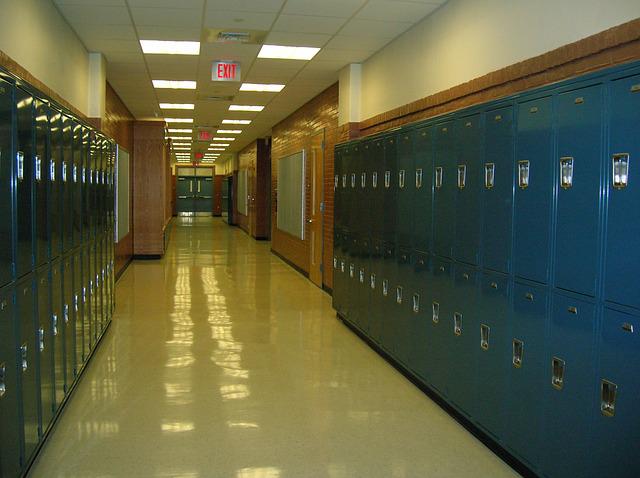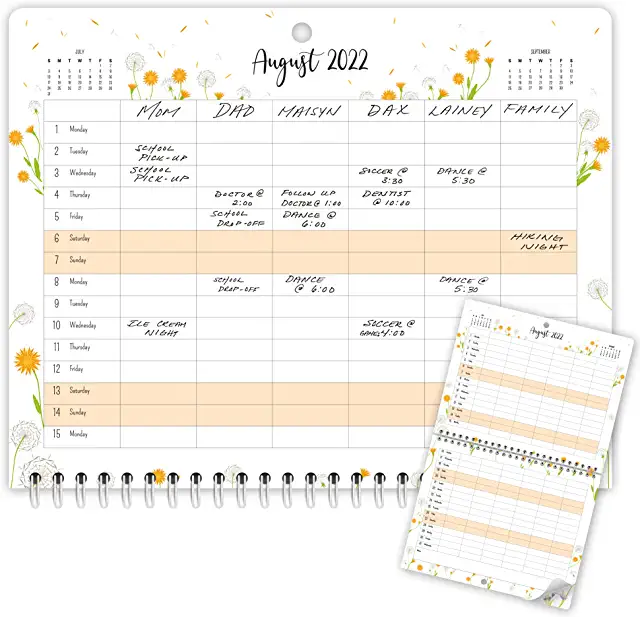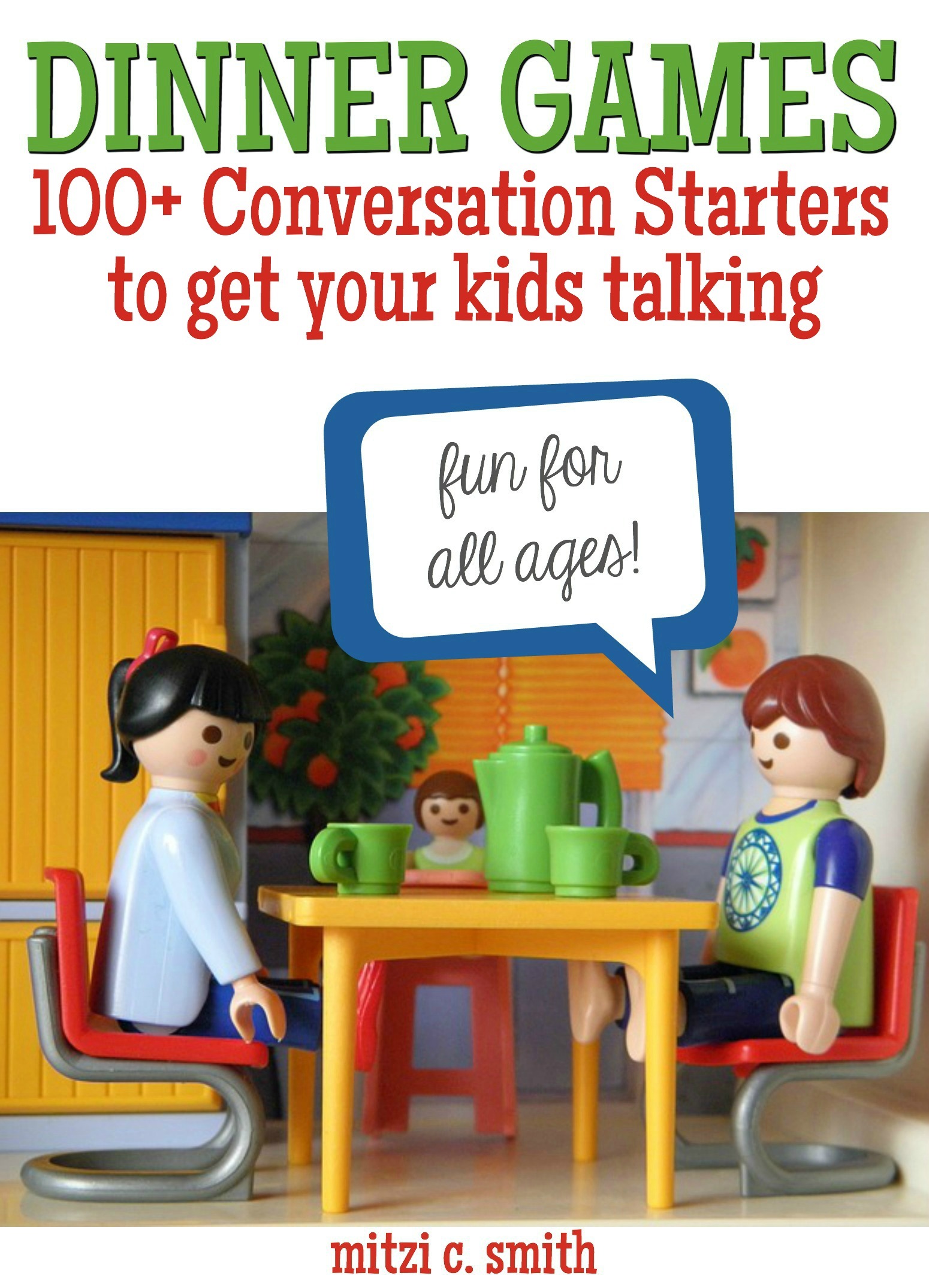7 ways to reduce back-to-school anxiety

I need at least another month of summer. But that’s because I’m a teacher.
As a parent, I loved back-to-school. I loved the supplies, the curriculum, the sporting events, the electricity of the school environment. Even though September brought chaos and stress, I was ready for them to start school again.
In honor of moms everywhere who are already buckling under back-to-school mayhem, here are seven ways to reduce your back-to-school anxiety. These reminders could help with the overwhelming tasks and concerns about sending your kids back to school (even if you home-school). Please share your ideas in the comments section, as they are probably better than mine.
Paperwork administration: school forms, information, upcoming dates, etc. Oh, the black hole of class administration. I remember hand cramps from signing dozens of teachers’ forms. Ideas: make a folder on your phone or computer for each kid: scan forms, contact info, waivers, field trip info, etc. into the file. Or go old school (like I had to): a binder for each child on a shelf in the kitchen or office . Notebooks had dividers for school forms, extra-curricular, contacts/carpools, upcoming assignments or projects (for kids you’re still supervising); papers came home and went in the binder by order of due date so I didn’t lose them. If you’re home-schooling, definitely buy a teacher’s planner and block out classes and activities for the whole day for each person. You can be generous with time slots and assignments, but at least have a plan, or you’ll never get anything done. Click here for organizing tips for the mountains of paperwork your child produces during the school year.
Plan the night before. We all know this works, but somehow, the process stops midway through the year. Have your kids pick out clothes the night before. Pre-pack lunches and backpacks. Have your child doublecheck homework assignments: Are they done? Are they in the backpack? Have kids pre-pack sports or music equipment. Put bags by the door. Kids have time for breakfast and conversation if they aren’t running around before school. And nobody gets mad and says things they regret all day. The benefit of kids packing themselves: they learn responsibility. Yes, it’s easier to do it yourself. But they need to learn to think ahead.
Make breakfast meaningful. Thanks to my mom, hot breakfasts were normal for me. Although not all kids are “morning people” or “breakfast people” (ie. teenagers struggle with both), a hot breakfast helps kids get out of bed, fills their bellies better than pre-packaged food (and it’s healthier), and plops them down in front of you before they leave. Start your kids’ days with peace. Fill them up spiritually, emotionally, and physically. Hug and kiss them before they leave. I truly believe that kids who are held and encouraged by their parents before they leave the house go into the world protected by emotional and spiritual armor. Remember that breakfast time grounds them for the day. I often read Scripture to the kids while they ate, or we learned a Bible verse together. I always prayed over them before we left the house (with the exception of over-sleeping days!)

Plan a master activity calendar. Color-code everyone’s activities on a master calendar, like Google calendar or a paper calendar with lines for each persons in the family. This is a great way to not only figure out rides and dinnertime, but it’s a visual indicator of over-commitments. When there are multiple things happening every day with the kids, that’s probably too much. Block out days, evenings, and family get-aways and control the chaos. Now that we’re pretty post-Covid, we’re in danger of reversing all we learned about slowing down and hanging out together. Give children a copy of their own schedules to hang in their rooms.

Make a family priority list. If the activity list is too long (and even if it’s not), kids’ activities will compete with one another (and you will have carpool conflicts). It’s a good idea to discuss and make a priority list you can defer to when something has to go. Often, we prioritize the loudest, most stressful event over the one that’s healthier for body, soul, and spirit. We make choices out of guilt, fear, and necessity instead of health and holiness. Here are examples of difficult choices (all good things) that often conflict with one another. I suggest deciding on your family priorities (you can always make occasional exceptions) so you don’t develop lifelong habits in your children that you don’t want. Whatever you prioritize becomes their highest priority
- sleep v. homework
- homework v. youth group
- sports/lessons v. youth group
- friends v. family time
- sports/lessons v. family time
- healthy meals v. fast food
- parent-assisted homework v. student responsibility
- educational tutoring v. sports/lessons
- sibling time v. friend time
- family time v. homework
- homework v. playtime/media
- family time v. church
Take fun days. Summer vacations are critical for family fun and emotional well-being. I think it’s also important to schedule enough mental health days for the family every month, even if it means an early dismissal or playing hookie from an organized activity. Plan a fun Saturday outing, a weekend away, a trip somewhere mid-year. You’re in charge of your child and his/her mental health. You’re in charge of their childhood experiences. I think it’s more impactful to keep kids’ emotional health even-keel than it is to for them to get a “perfect attendance” certificate. Maybe that’s just me. Still, I’d say don’t be afraid to take your kids out of school for a day once and awhile when they need it (especially for one-on-one time with you). And don’t let the school make you feel bad about it. My kids didn’t miss gobs of school, but it was important sometimes to take a Busch Gardens day, a ski day, mission trip, or an early-dismissal to just enjoy family time away from the stress of the classroom.
(Caveat). Yeah, I’m a teacher, so I don’t recommend skipping school or getting behind on homework. That’s not what I’m talking about. I’m talking about using up the dead time or calling an audible when your kid is maxed out. He/she is way more important than a class. Post-covid, I’d expect that schools are more understanding about mental health days than they used to be. Your kids will likely remember big trips to exotic places, but their ability to manage anxiety and stress directly relates to their day-to-day experiences. Fun days also keep you in touch with what’s happening in your children’s lives. Kids unveil their fears when you’re traveling and spending quality time together away from normal life.

Watch mental health. Be aware of your child’s stress level. Are they “sick” a lot? Have stomach aches, headaches, sleeping poorly, eating poorly? Are they resistant to school? Are they angry about assignments or teachers? All of this points to potential anxiety problems. An emotionally-healthy child will want to go to school most of the time, even if they don’t like schoolwork. If your child never wants to go, there’s a reason, and you should talk to counselors, teachers, coaches, and your child to find out why. Your child might have a learning disability or a relational problem at school.
(Anxiety caveat). Anxious children who are not learning to manage stress learn that life is dangerous; they learn not to trust, and they learn to “fit in” instead of confront their fears and mange their stress. Playtime and family time are critical for learning about balance and self-awareness. School must be a place where every child feels safe, seen, and known. If that doesn’t happen, a child will develop coping mechanisms (some unhealthy). In order to find out what’s going on, watch for signs of stress, and engage rather than quiz your children. Click here for table talk ideas by my author-friend Mitzi Smith (and click here for a million ideas for family fun, meals, trips, decorating, etc.) or check out these conversation starters by me:
- tell me something funny that happened today.
- which class was the most interesting and why?
- which teacher do all the kids like most and why?
- name something that bothers you about school life.
- if you could teach one of your classes, what would you teach?
- if you could add a class at school to learn about anything in the world, what would you want to learn?

Be involved. Pray for your kids. Pray for their teachers, their safety, their friends, their identity. Read the curriculum. Volunteer in the school. Invite our kids friends over (yeah, the ones you don’t know yet). Attend their games, concerts, and shows. Parents who are involved at their kids’ schools reduce anxiety and misbehavior. (Click here for more on that.) Be a coach, room parent, sponsor, or substitute. (Teens love that. Not. But I did it anyway.) Be present. We sponsored team breakfasts at our house (pancakes and bacon will bring out teens an hour before school.) Show up at the cafeteria with a pizza for your kid’s table. Bring treats to room parties. Go on those never-ending field trips. Being involved merges your child’s two worlds into one, which creates peace for both of you. Check out these prayers and articles about your kids at school (no matter what their ages):
A prayer when your kids leave for school
The back-to-school kitchen conversation with God (ie. freak-out to God)
My achey-breaky heart: it’s time for college again
10 tips for sending your kids back to college
A prayer for your college student
How everyone can benefit from back-to-school
You will decrease your anxiety and your kids’ anxiety if you address the big back-to-school areas with a confident plan. This goes for home-schoolers, too. You’ve got anxiety to manage. You’re planning everything. Click here if you’re considering home schooling. You got this.
Have a great year, moms and dads. You are raising the next generation. Let’s review our priorities and expectations. Sometimes, we get out of balance. We focus on the minors instead of the mountains. The trees instead of the forest. You get it.
Don’t worry about perfection. Just be present.
“The task of the modern educator is not to cut down jungles, but to irrigate desserts.”–C.S. Lewis

